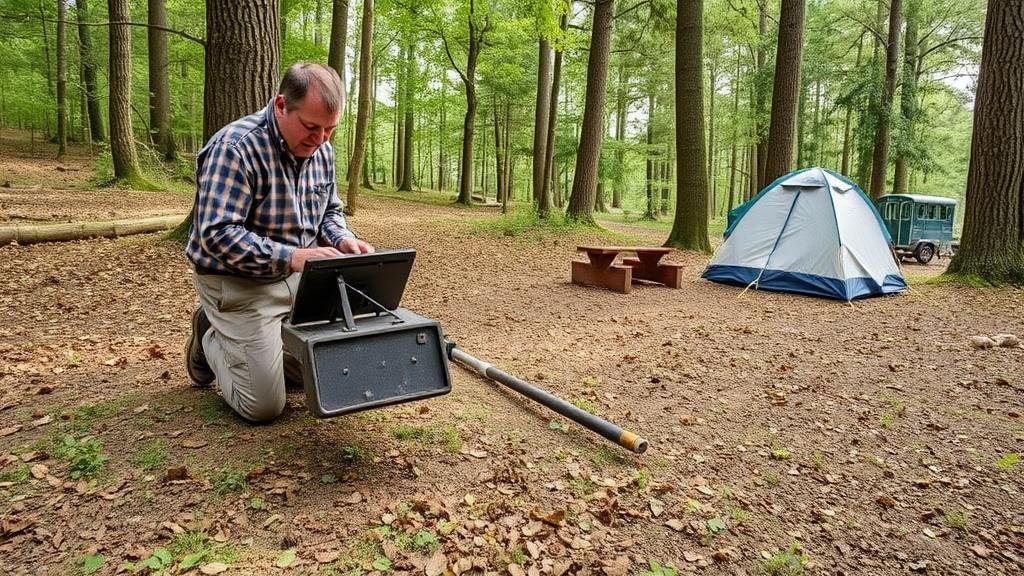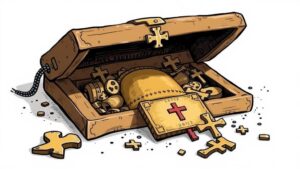Detecting for Coins in Old Picnic Areas and Camping Grounds
Detecting for Coins in Old Picnic Areas and Camping Grounds
Metal detecting in old picnic areas and camping grounds can be an exciting and rewarding venture for hobbyists and professionals alike. These sites often hold historical significance, and with the right knowledge and equipment, treasure hunters can uncover valuable artifacts, including coins. This article provides a comprehensive overview of the techniques and considerations involved in effectively detecting for coins in such locations.
The Historical Significance of Picnic Areas and Camping Grounds
Picnic areas and camping grounds often reflect social activities from past decades, serving as gathering spots for families, friends, and communities. As people enjoyed their leisure time, they frequently lost or discarded objects, including coins. Historical records indicate that many popular parks and camping spots date back to the early 20th century, making them prime locations for metal detecting enthusiasts.
Choosing the Right Equipment
The success of metal detecting largely depends on using the appropriate equipment. Below are key components necessary for effective coin hunting:
- Metal Detector: Choose a detector with a frequency suitable for coin detection, typically between 5 kHz and 15 kHz. Brands like Minelab and Garrett offer models specifically designed for detecting coins.
- Headphones: A good pair of headphones can enhance your ability to hear faint signals, which is crucial in noisy environments.
- Digging Tools: Lightweight, efficient digging tools such as trowels and sand scoops are essential for unearthing buried coins without causing damage.
Where to Search: Identifying Optimal Locations
While coins can be found almost anywhere, some areas have higher probabilities of yielding results. Here are some critical considerations when selecting a location:
- High Traffic Areas: Focus on spots where large groups congregated, such as around picnic tables, BBQ pits, and fire circles.
- Old Trees: Look near old trees where people might have gathered for shade. Coins often fall out of pockets or are buried in dirt displaced by roots.
- Paths to Water: Detect along pathways leading to water sources, as these were often popular spots for campers.
Understanding Coin Composition and Detection Signals
Coins are made of various metals, each producing distinct signals during detection. Familiarity with these signals can significantly improve your success rate:
- Copper Coins: Typically give a higher-value reading on detectors due to their conductive properties.
- Silver Coins: Produce strong signals and are easily detectable due to their metallic makeup and historical value.
- Modern Coins: Often have a mix of metals, such as nickel and zinc, which may affect their detectability but generally fall within the same reading range as older coins.
Researching Historical Context
Knowledge of local history can enhance detecting success. Consider using resources like local archives, historical societies, and online databases to research past activities at specific picnic areas. For example, a research project conducted in Northern California revealed that many historical campsites, active in the 1930s and 1940s, contained substantial numbers of coins and relics. On-site research helps tailor your search approach for specific types of artifacts.
Case Studies: Success Stories
Numerous metal detecting enthusiasts have shared remarkable finds from picnic areas and camping grounds. One notable case involved a hobbyist in New York who uncovered over 50 coins, including two old silver dollars, during a single afternoon in a 1950s picnic area. Another example comes from a team of researchers who, after meticulously combing a historical camping site in Virginia, found nearly 100 coins dating back to the early 1900s. Such accounts illustrate not only the potential wealth of these areas but also the importance of patience and persistence in the pursuit of hidden treasures.
Ethics and Legal Considerations
As with any form of treasure hunting, ethical considerations must be top of mind. Ensure you have permission to metal detect in the area and familiarize yourself with local laws regarding the recovery of artifacts. Also, always practice responsible detecting by filling in holes after digging and reporting any significant historical artifacts to local authorities or historical societies.
Conclusion
Detecting for coins in old picnic areas and camping grounds presents a unique opportunity to connect with history while engaging in a rewarding hobby. By employing the right equipment, thoroughly researching locations, and respecting legal and ethical considerations, both novice and seasoned metal detectors can uncover valuable treasures beneath the surface. Remember to approach each hunt with curiosity and respect, as every find tells a story of the past.
Actionable Takeaways:
- Invest in a quality metal detector suitable for coin hunting.
- Focus on high-traffic areas in old picnic spots and camping grounds.
- Conduct thorough historical research to maximize your success.
- Respect local laws and ethics during your detecting adventures.


